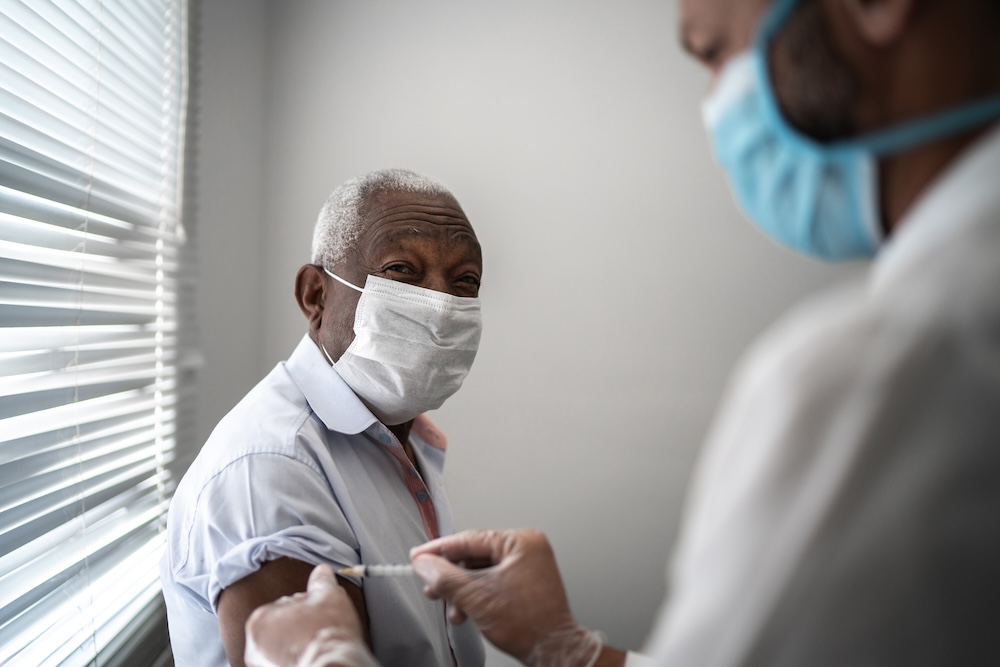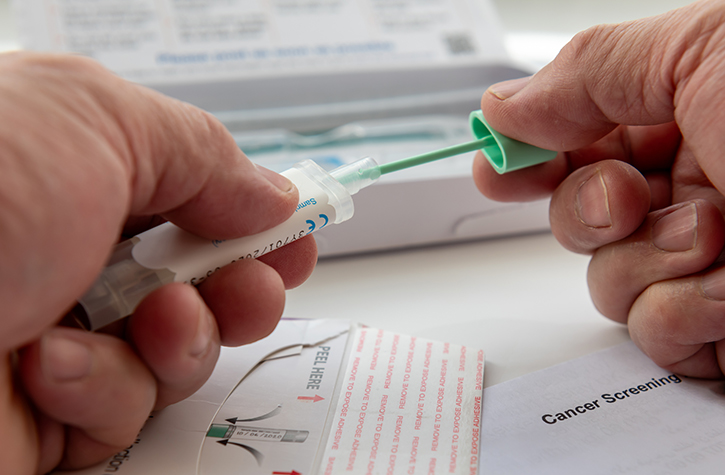March 29, 2024
Women who reported drinking 8 or more alcoholic beverages per week were significantly more likely to develop coronary heart disease than those who drank less, according to new Kaiser Permanente research being presented at the American College of Cardiology Annual Scientific Session.

Jama Rana, MD, PhD
“There has long been this idea that alcohol is good for the heart — but we are seeing growing evidence challenging that notion,” said lead author Jamal Rana, MD, PhD, a cardiologist with The Permanente Medical Group, and an adjunct investigator at the Kaiser Permanente Division of Research. “We felt it was important to leverage comprehensive data we have available at Kaiser Permanente to contribute to this conversation by exploring the relationship between levels of alcohol use, including heavy episodic or ‘binge’ drinking, and the risk of coronary heart disease in women and men.”
The study included 432,265 Kaiser Permanente (KP) Northern California members ages 18 to 65 who did not have a history of heart disease or stroke. All the participants were asked about their alcohol use during a primary care visit as part of KP Northern California’s “Alcohol as a Vital Sign” alcohol screening initiative in primary care, between 2014 to 2015. The research team identified which patients had a diagnosis of coronary heart disease in the following 4 years. Coronary heart disease occurs when the arteries that supply blood to the heart become narrowed, limiting blood flow.
The researchers used federal standards to classify the participants’ overall alcohol intake as low (1 to 2 drinks per week for men and women); moderate (3 to 14 drinks per week for men and 3 to 7 drinks per week for women); or high (15 or more drinks per week for men and 8 or more drinks per week for women). Binge drinking was defined as more than 4 drinks for men or more than 3 drinks for women in a single day in the past 3 months.
The study found that young to middle-aged women who reported drinking 8 or more alcoholic beverages per week — more than one per day, on average — were 33% to 51% more likely to develop coronary heart disease compared with those who drank less.
Binge drinking increases risk
The highest risk was seen in women and men who reported heavy episodic or “binge” drinking. Women in this category were 68% more likely to develop heart disease compared with women reporting moderate intake. Men who reported binge drinking were 33% more likely to develop heart disease than men who drank a moderate amount of alcohol.

Stacy Sterling, DrPh, MSW
“Alcohol has been shown to raise blood pressure and lead to metabolic changes that are associated with inflammation and obesity, both of which increase the risk for heart disease,” said senior author Stacy Sterling, DrPH, MSW, a research scientist at the Division of Research. “Women also process alcohol differently than men due to biologic and physiologic differences, and this may contribute to the increased heart disease risk we found. It’s concerning because there has been an increasing prevalence of alcohol use among young and middle-aged women, including in the number of women who binge drink.”
Overall, 3,108 study participants were diagnosed with coronary heart disease during the 4-year follow-up period. Among women, those who reported high alcohol intake had a 45% higher risk of heart disease than those reporting low intake and a 29% higher risk than those who reporting moderate intake.
The study did not include people who said they did not drink alcohol. The researchers adjusted the data to account for age, physical activity, obesity, smoking, and other known cardiovascular risk factors.
Important message for doctors
The findings were presented at the annual American Academy of Cardiology meeting as an abstract. The full study has been submitted to a medical journal but has not yet been peer reviewed or published.
The researchers say that even though the findings are preliminary, it’s not too early to translate the research into practice.
“At Kaiser Permanente Northern California, alcohol use is considered a vital sign, and we ask all our patients how often they drink and how much they drink, and we record the response at every medical appointment, the same way we record someone’s blood pressure,” said Sterling.
Added Dr. Rana: “Our findings suggest that as doctors we need to be doing more to talk to our patients — especially our female patients — about the potential heart risks associated with excess and binge drinking.”
This study was funded by the National Institute on Alcohol Abuse and Alcoholism.
Co-authors include Felicia W. Chi, MPH, of the Division of Research, and Isaac Acquah, MD, MPH, MedStar Union Memorial Hospital.
This story originally appeared on Division of Research Spotlight.






